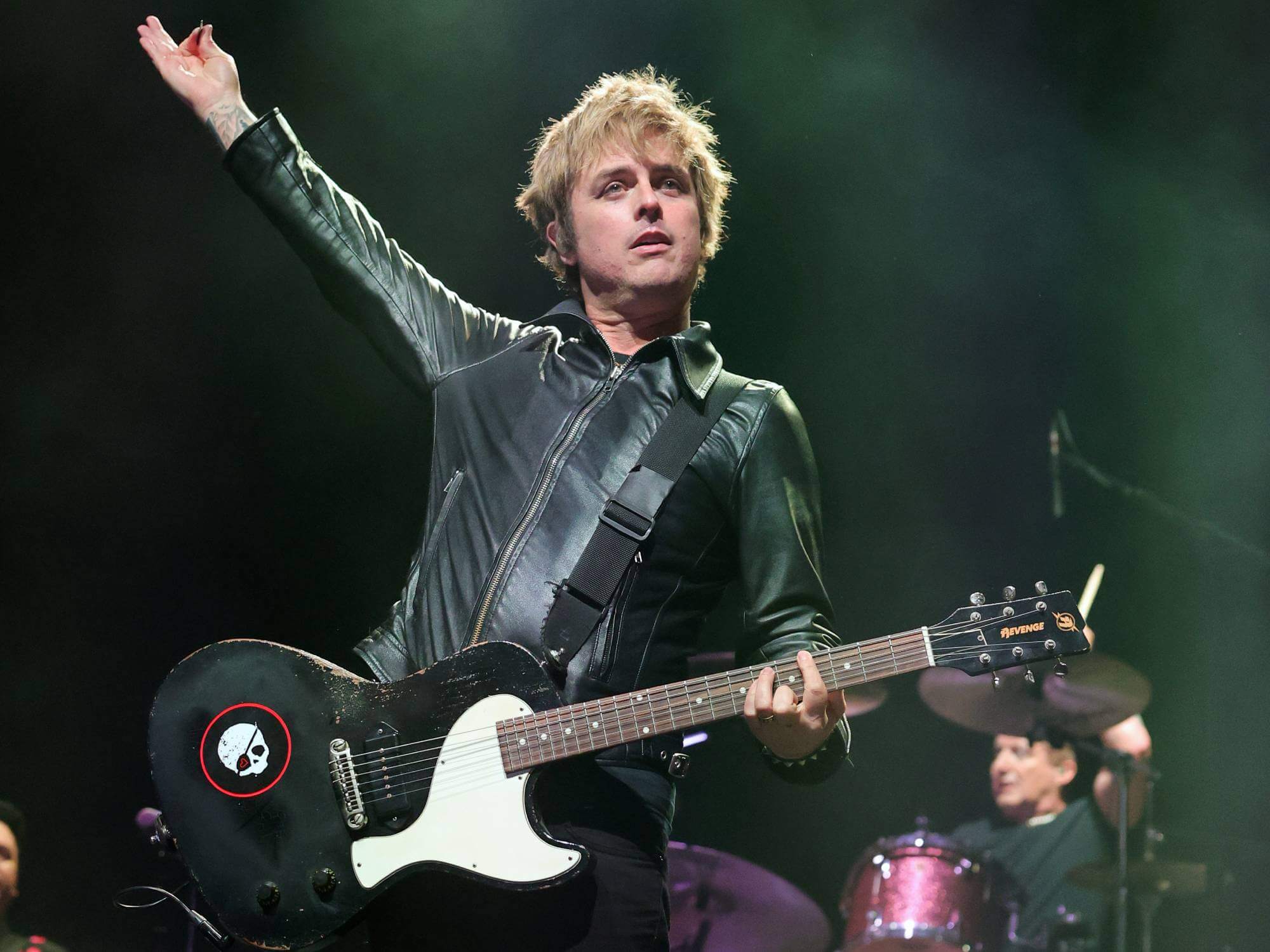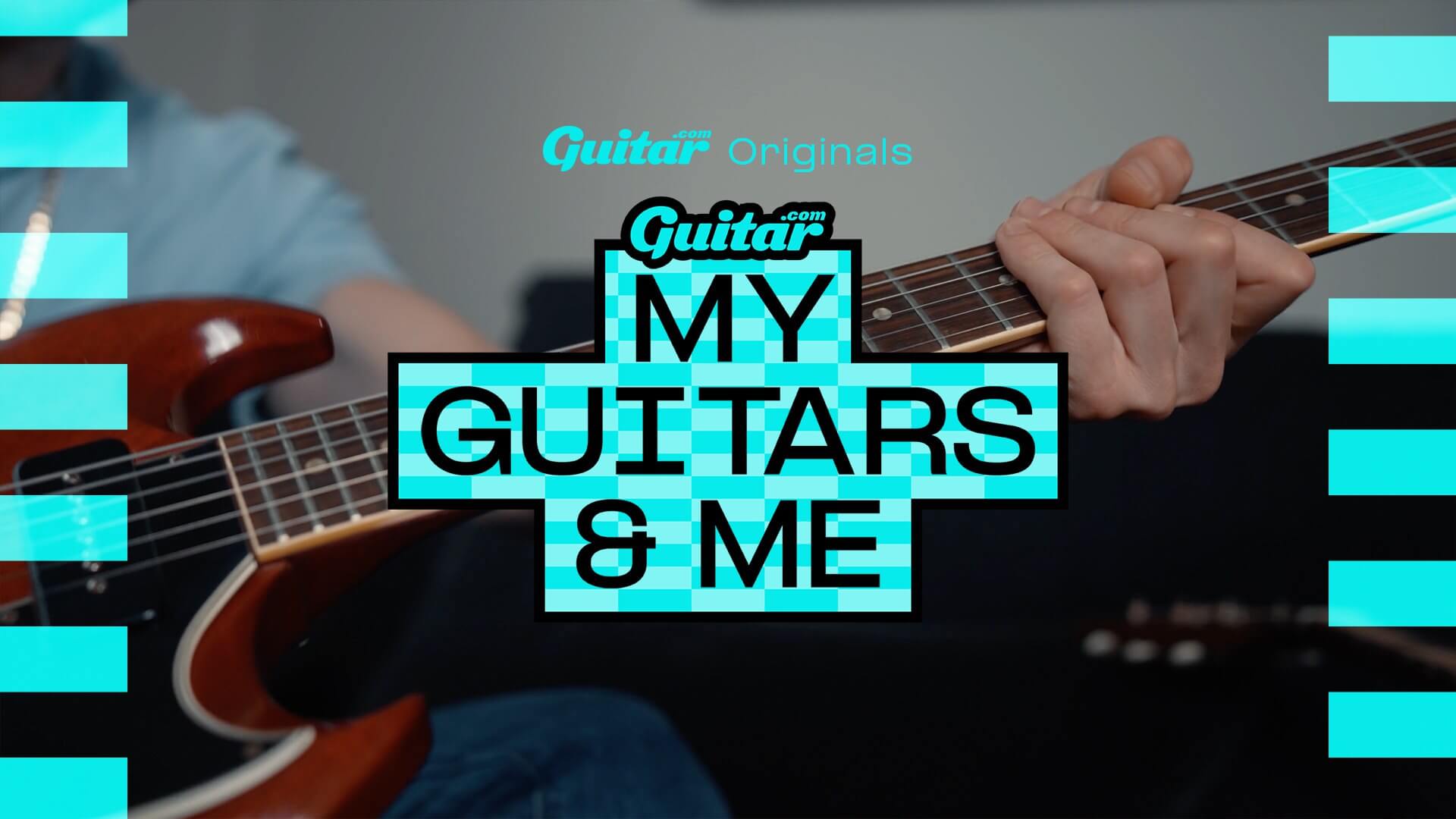“If you wanted to play, you had to be as good as Eddie Van Halen, Randy Rhoads and Yngwie Malmsteen”: Billie Joe Armstrong on why he became the “anti-solo guitar player”
Armstrong believes he “soloed more” on Saviors than “any albums we’ve ever done”.

LAS VEGAS, NEVADA – FEBRUARY 09: Billie Joe Armstrong of Green Day performs during EA Sports’ The Madden Bowl at the House of Blues Las Vegas inside Mandalay Bay Resort and Casino on February 09, 2024 in Las Vegas, Nevada. (Photo by Ethan Miller/Getty Images)
Billie Joe Armstrong has explained why Green Day‘s new album Saviors is arguably the most guitar solo-heavy of the band’s career so far.
In a new interview with Guitar World, he details how he made a more conscious effort to incorporate soloing into the band’s music, to the point where he estimates that “soloed more on this record than any we’ve ever done”.
“And not in a shredder kind of way, but just more like, you know, I love James Honeyman-Scott and Mick Ronson and guys like that, who play those really melodic solos that fit with the melody and what the song is calling for.”
Armstrong adds that he also worked more solos into the songs on Saviors simply for fun. “Plus, it’s fun to just kind of go off and rip a guitar solo,” he continues. “Like Fancy Sauce – I’m playing that ‘ghost-sounding’ solo where it kind of comes in and out, and Living in the ’20s, I wanted to have a guitar solo like I Can’t Explain or an old Kinks song, where it just has that kind of haywire feel to it. It’s also very Angus [Young]-sounding. You’re bending strings and wiggling ’em around.”
In contrast, Armstrong admits that his style was far more rhythm-oriented in the early days of Green Day, which came about as a response to the guitar virtuosos he admired growing up.
“When I was a kid, I loved Eddie Van Halen and Angus Young and Randy Rhoads. And then something happened where it was like you had to be in the guitar Olympics,” Armstrong explains. “If you wanted to play, you had to be as good as those guys and be able to play as fast as Yngwie Malmsteen.
“And I was like, ‘Man, then I’m just gonna end up sitting in my room for the rest of my life. I’m never gonna be in a band, ever!’ That’s when my tastes started changing and I started getting more into punk music and alternative, where it was more about rhythm playing.
“And also still about great guitar sounds and great solos, but not like the heavy metal thing, which started to become kind of a parody. So what happened was I got more into being an anti-solo guitar player, especially for Dookie.”
He concludes: “I’ve gotten to a point where I know my limitations, but at the same time I’m really pushing myself to be a better guitar player.”




